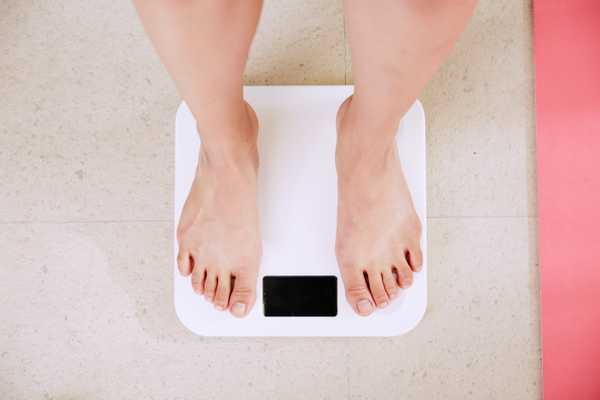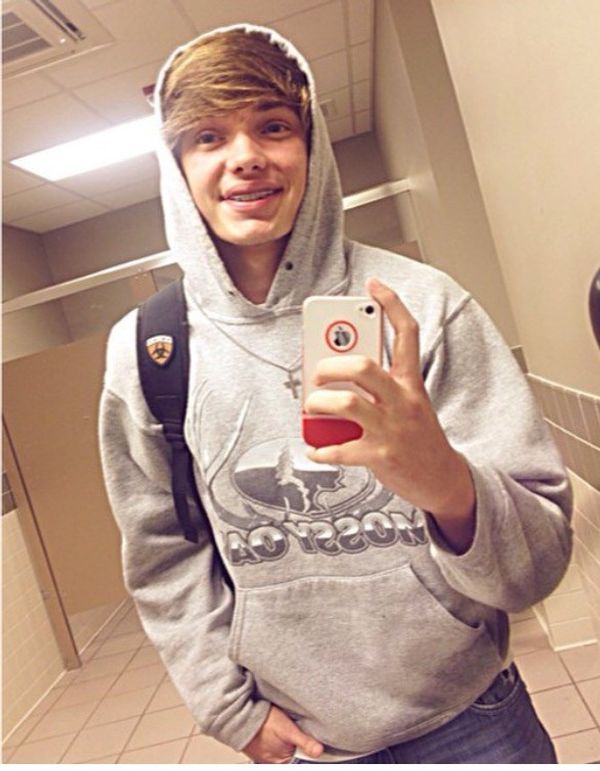When I was in sixth grade, I went to my pediatrician for a normal checkup. I remember my doctor telling me that she was going to check my back to see if my spine was curved. She explained to my mom and me that this odd-sounding word, scoliosis, is very common in pre-teen girls. Sure enough, she checked my back and suggested that I see an orthopedic physician. The next four years to come would include some of the toughest moments of my life.
I wore a rigid back brace from sixth to ninth grade, every single night. It was uncomfortable, it made me sweat a lot, but the worst part was that I had to take it everywhere with me. It accompanied me on sleepovers, and on small and large trips. Not that this is completely useful information, but packing an abnormally shaped and large brace in a suitcase takes a certain level of skill. My back brace was basically a world traveler as well. I joked at times that it should've had its own passport. It traveled all the way to Hawaii, Italy, and Tanzania (just to name a few places). Wearing that brace every night was not pleasant, but I did it because I thought it would correct the severity of my curve degree.
I saw a doctor in Chapel Hill's orthopedic department every six months. In June of 2014, I went for the appointment, but we received some bad news. My curve degree went from roughly to 30 to 55 in just six months. When girls go through puberty, growth spurts accompany that. This is one of the reasons why scoliosis is so common in girls. I remember feeling confused and scared at that moment. A few seconds later, the doctor said that I would need spinal rod fusion surgery. That scared me even more. I looked to my parents for comfort, but they looked nervous too.
During that summer, my parents talked to many of my relatives who are doctors and did an extensive amount of research. They wanted to make sure that the surgery was both safe and completely necessary. By about early September, we had reached a final decision. I was going to need surgery. I was 14 years old at the time, a sophomore in high school, and taking my first AP class. After doing some planning, I learned that I was going to get my surgery in December (right after midterms), and that I would miss roughly a month of school. I was nervous, but I knew that if I dedicated all of my energy into panicking, it wouldn't do me any good. Usually, I am the kind of person who gets anxious and nervous about anything health-related, but this time I chose to let it be and just relax.
December 19, 2014: the day of my surgery. I remember waking up very early, taking a shower with this weird body wash, and then heading to the hospital. I was a little cranky because I couldn't eat anything. When we checked in, I went into a small room to change into a hospital gown. I eventually made it to a bed and got an IV put in. My parents were very visibly nervous (they had just been reminded that the surgery would take about five hours). For some reason, I, on the other hand, was very relaxed, almost indifferent. A few minutes had passed, and I saw my doctor. He smiled at me and asked if I was ready. I said yes, and waved to my parents as I was wheeled into the operating room.
Due to the heavy medication that I was on post-surgery, I don't actually remember much that happened during the four days I was in the hospital. I know that some of my friends and family came to visit. I remember having trouble sleeping, and how completely agonizing it was when a team of nurses stood me up for the first time in days. I practically had to learn to walk again. After I crossed the hurdle of being able to walk, my parents and I were finally able to go home.
I'm not going to get into the tedious details, but let's just say that my first week or so back home was tough. However, I eventually got into a daily routine. I started to feel even a little comfortable again. And then, what honestly felt a little too sudden, was when I had to go back to school. I had missed a month's worth of material, homework, and tests. That being said, I had a lot of catching up to do. Not all my teachers were that fair or understanding. I got some bad grades. I walked slower. I couldn't do certain things. It was a very frustrating and sad time for me. I was constantly upset, and it felt like nothing was going to change or get better.
If I had to choose one thing that both my surgery and long recovery taught me, it would be patience. It wasn't my fault that I was walking slowly or constantly in pain. I needed to give myself time to recover and heal. I started to look at things more positively, and went into situations hoping for the best, rather than assuming the absolute worst. By mid-March, I was back to normal. I felt like myself again.
My surgery definitely helped me realize that I am both strong and resilient because those were not words that I would usually use to describe myself. My surgery didn't break me down or defeat me, but actually helped me to learn more about myself and what I am capable of. I have multiple cobalt rods in my spine, but that's not what makes me strong. It is my determination and will.





















